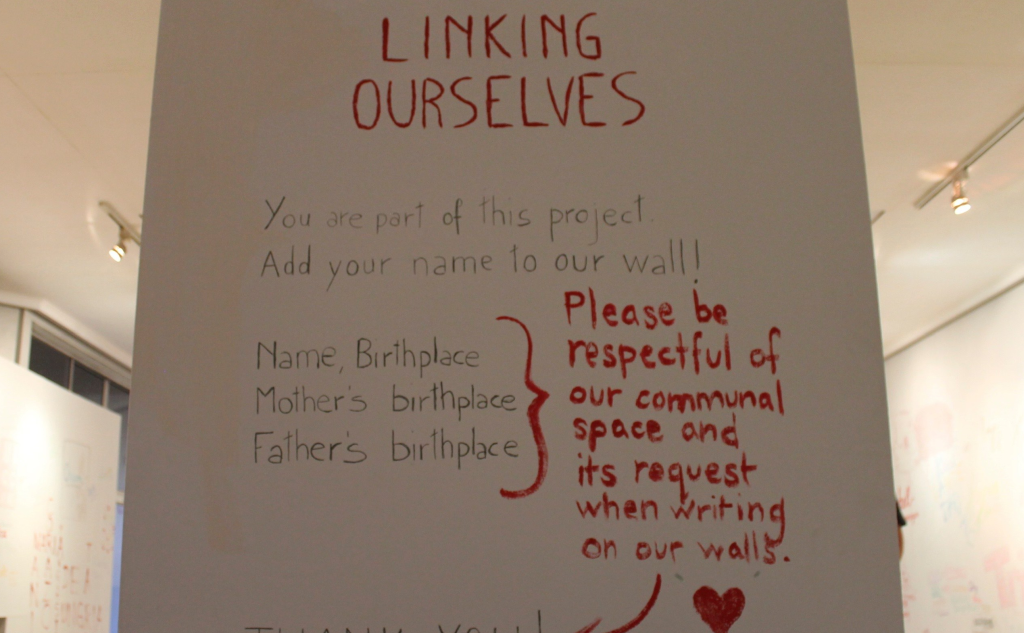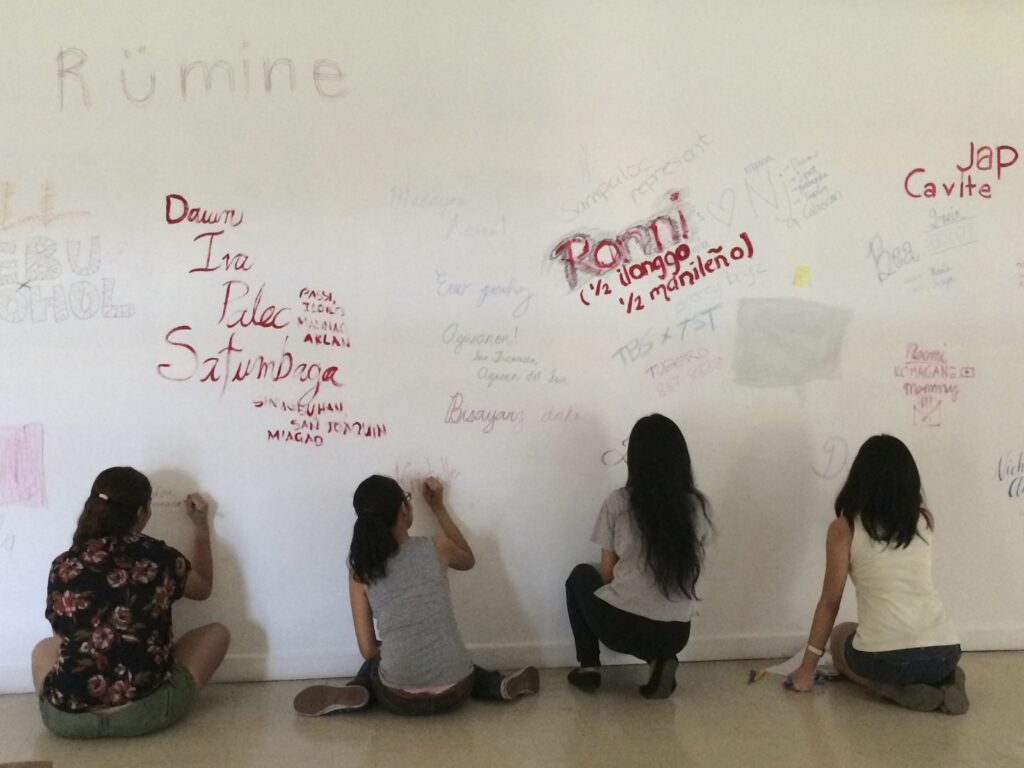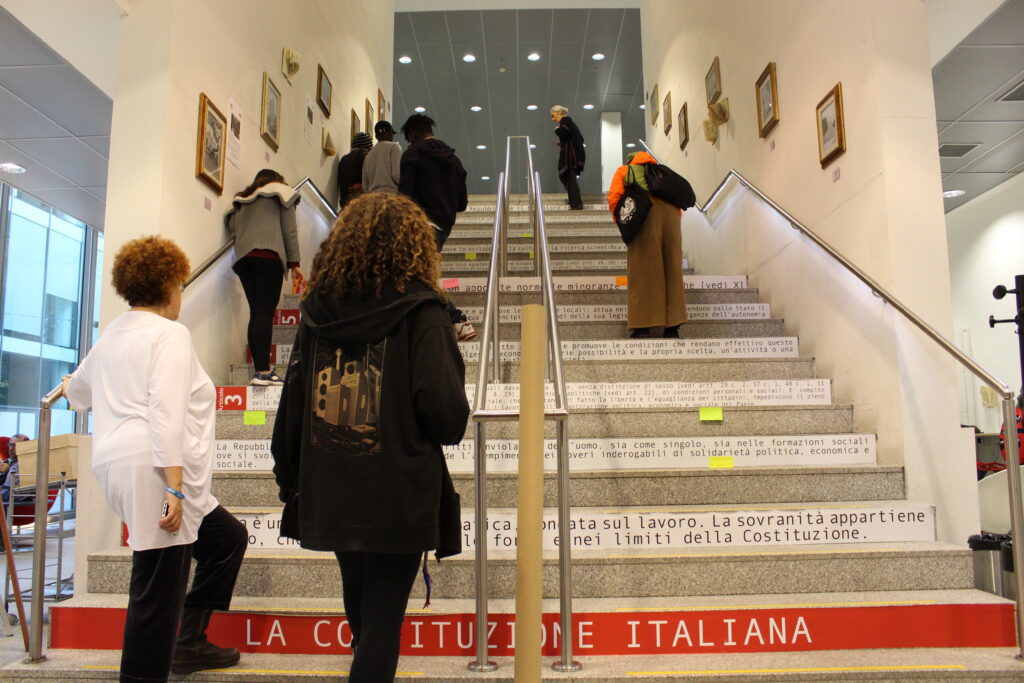
The Reconciliation of Magik Salap (a Triptych) by Sharon Estacio and Giovanna Rovedo is an ongoing multimedia project launched in 2015. Aims to study and document the mobility and molteplicity of identity at transnational and transcultural levels. Our three research countries are the Philippines, Italy and the United States of America – the country of origin, birthplace and/or residence of the two researchers. As dance artists with backgrounds in anthropology and holistic health, we consider the body as agent, observer and soundboard of its context. Engaging our
own bodies in this research gives us the opportunity to recognize the continuous evolution of identity related to the geographical and cultural borders in which we live.
“I believe that the cultural and geographical distillation of generations of people, removed from their ethnic heritage due to immigration, awakens an innate need to make the pilgrimage home at some point in their lives”. Sharon Estacio
“My goal within the field of cultural anthropology is to study dance and the possibilities that this metalanguage has to create connections with different cultures”. Giovanna Rovedo

The origin we are talking about in this project is that of its own roots, that inherited from its ownparents, grandparents and ancestors. You can not choose these origins, unlike perhaps the place that we decide to call home in our lifetime. Each person has his own pathidentity that forms it and directs it in future choices. In this project we are also interested in to reflect on the different paths that contribute to creating contemporary identities.
PHASE I – PHILIPPINES
The mission of phase one of our project is to initiate a cultural exchange between the Kalinga tribe of the Cordillera region of the Philippines and the University of the Philippines (Diliman) Dance Company in the vernacular of American contemporary dance and holistic health, used as a conduit between indigenous peoples, local dance students and ourselves. Indigenous dances will be studied to trace cultural lineages between these historical, functional dances and contemporary dances as they are used and practiced to date. Indigenous lifestyles will be studied through a holistic lens with respect to the current trends of “returning to the land” and seasonal eating. The state of our bodies directly affects our artmaking as interpreters and creators. It is critical for pre-professional dance artists to understand the art of well-being as it will be a major contributing factor towards the sustainment of a long career in such a physical field.
video phase I – Philippines
PHASE II – ITALY
Until now we have experienced a kind of design fragmentation of the Italian phase with respect to that flippina. While in the Philippines we had a precise time and space from live for our research, here in Italy since 2015 we have brought the project to be research personal, entertainment, community sharing and documentary work. This mode fragmented, even in space and time, has allowed a widening of the conditions of research and a positive generalization about the people, situations or communities encountered. In tandem with the performative side, the project will probably become a research methodology personal and shared towards the other of the developments of this research on contemporary identity. The variety of the Italian phase also becomes an opportunity to ask questions about identity and how it comes about.

CREDITS
A project by Sharon Estacio and Giovanna Rovedo.
The project was presented for the first time at the UP Vargas Museum in Manila in April 2015. We conducted an artistic residency open to the public of the museum about the research done on traditional Kalinga dances in Tabuk. Together with us there was a photographic exhibition on DNA/identity connections. Collaboration First Phase: Sheila E. Dennis with Jinggo Montenejo, Francisco A. Datar, Alison Domzalski, Jacob Maentz.
Residence, workshop and performance at Teatro della Limonaia and Le Murate PAC (Firenze Open Art Project) with the support of Company Blu (Peer Coaching) and SESTO TRAM (Teatro di Residenza Artistica Multipla), Sesto Fiorentino 2015. Research in the form of performance and interaction with the public at Officina Caos/ Teatro Stalker within the Festival Per Un Teatro Contemporaneo, Torino 2016. Workshop with the participants of the Festival La Città che Viaggia, at MEM Mediateca del Mediterraneo, Cagliari 2018.
Murate Art District for Sharing Training/ Attivisti della Danza, Florence 2019. Officin&Ideali – Residenze in Transito, 2020.